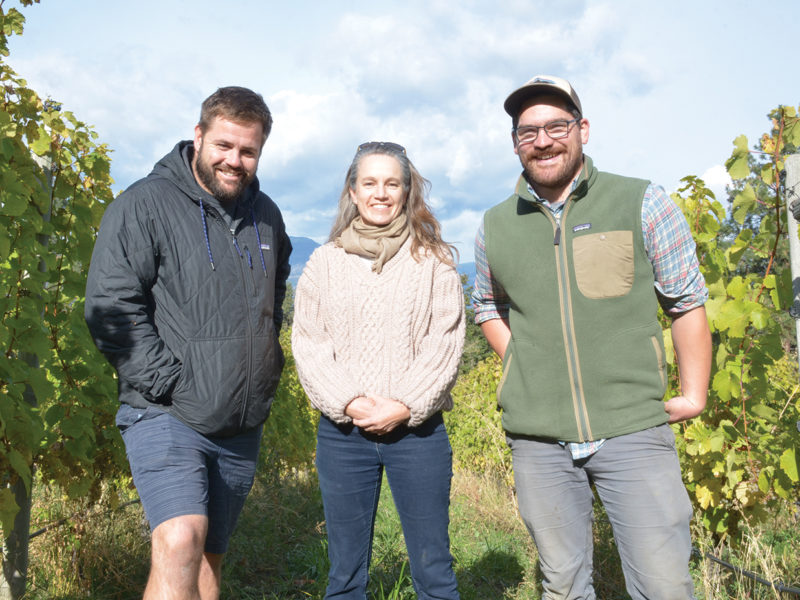KELOWNA – The first wines certified under a new made-in-BC sustainability program could be on shelves as early as next spring.
“We are excited to be finally launching our official certification process,” says Katie Pease, program manager for Sustainable Winegrowing BC (SWBC).
Originally scheduled to launch this past April, COVID-19 delayed the program’s launch until November 1. With the program up and running, BC vineyards and wineries are now able to apply for a third-party audit, receive certification and describe their wine as “made from grapes grown in a certified sustainable vineyard” or “made in a certified sustainable winery.”
Program development began more than 10 years ago, driven mostly by industry volunteers under the auspices of the BC Wine Grape Council. Since then, the council’s sustainability committee has drawn members from across the sector.
“We have representatives from the big players like Arterra and Andrew Peller, as well as medium-size wineries like Quails’ Gate and Hillside Estate, and a smattering of boutiques like Tantalus and Le Vieux Pin/La Stella,” Pease says. Vineyard owners, consultants and Summerland Research and Development Centre scientists round out the membership.
“This group who developed SWBC really wanted to create both a profitable, environmentally friendly and socially just wine-growing region, that could see prosperity today,” says Pease. “Ten years ago, here in BC, as far as I can tell, it was a pretty small and select group of people who understood that line of thinking (planet, people, profit), but today, of course, I think much more so.”
Sustainability goals
Over the years, the committee has written sustainability goals and developed a self-assessment tool for both vineyards and wineries. Vineyard sustainability goals include management of the watershed, soil, irrigation, integrated pest management (IPM) and social equity. Winery goals include water and energy efficiency, waste management and climate action as well as social equity. To date, 68 vineyards and 37 of the province’s 280 grape wineries have completed the self-assessments.
Pease says it was always the committee’s aim to provide a formal audited certification. Organizations claim they are sustainable, but they need to be able to back it up.
“It is not just being able to say, ‘I conserve water because I use drip irrigation,’” she says. “It is taking the next step and saying, ‘What does that mean in comparison to an industry best practice of how much water you should be using?’”
Pease and the committee worked to develop outcomes with metrics that would back any claims made.
“I feel we are leading-edge in launching something newish in the certification industry,” she says. “Other certification programs still don’t collect data; they work more from a laundry list of
to-dos.”
Operations that have completed the self-assessments will be able to apply for an audit, Pease explains.
“What certification means different from just doing self-assessments, really, is that the self-assessment has been verified by a third party,” she says.
SWBC will run courses throughout the winter to help growers and wineries prepare for their audits, which will begin in the 2021 growing season.
Auditors come from the local agriculture industry, with experience in organic certification or environmental farm planning.
“We will train them to our standards and they will go out and do the verification,” says Pease. “They will have a pretty high level of knowledge of the content of the standards and they should be a resource as well.”
The auditor will visit the vineyard or winery and walk through each of the criteria within the standard, she explains.
“Some of the criteria will require documentation such as chemical, water or energy use, while some just require that the auditor see the process of how they do something, like store toxic chemicals,” says Pease.
The auditor makes the recommendation about how they do against the SWBC standards and SWBC will grant certification to those that measure up.
SWBC is designing a certification logo for members to use, and the BC Wine Grape Council will be developing a communications program, adds Pease.
“We work on a very slim budget and we are hoping to receive some grant funding which would allow us to give much more energy to the communications piece,” she says. “But it will be our members who really tell the story.”


 Raspberry growers hold AGM
Raspberry growers hold AGM